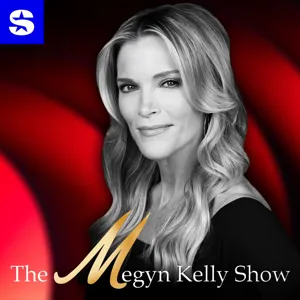Podcast Summary
Wesleyan University Eliminates Legacy Admissions to Boost Diversity: Wesleyan University, following societal values and economic pressures, eliminates legacy admissions to focus on merit-based admissions and increase diversity
Wesleyan University, following the Supreme Court's ruling against considering race in college admissions, has recently decided to eliminate legacy admissions as well. This symbolic move aims to increase diversity and reduce unearned exclusivity in the admissions process. Wesleyan, an elite liberal arts college with a long history and high sticker price, has seen a shift in societal values and economic pressures since the 1970s. While a college degree is not a necessity for success, it significantly improves one's chances of avoiding economic hardship. As more colleges and universities drop legacy preferences, the focus on merit-based admissions continues to grow.
Legacy Admissions: An Unequal Advantage: Legacy admissions disproportionately benefit wealthy and white students, perpetuating educational inequality. Critics argue it's unfair and hypocritical, especially in light of race-based admissions limitations.
While higher education provides a valuable foundation for a lifetime of learning, the process is not equal for all. Legacy admissions, a practice that grants special consideration to children of alumni, is a significant factor contributing to this inequality. Although proponents argue it fosters loyalty and helps with donations, critics claim it disproportionately benefits wealthy and white students. For instance, at Wesleyan University, about 8% of students have a parent who attended, and these students are four times more likely to gain admission than others with similar qualifications. The president of Wesleyan, Michael Roth, has been advocating for the elimination of legacy admissions due to its perceived unfairness, as it grants an unearned advantage. Despite the negligible impact on Wesleyan's admissions, Roth made a public announcement in response to the Supreme Court decision limiting race-based admissions, recognizing the hypocrisy of granting preferences based on affiliation rather than merit. The relationship between legacy preferences and race-based admissions is complex, as legacies are predominantly white, and some argue the practice was initially introduced to exclude certain groups. Ultimately, the decision to eliminate legacy admissions is up to individual institutions.
Reevaluating Exclusivity in Higher Education: Virginia Tech discontinued nonbinding early admission for fairness in financial aid comparisons. Wesleyan continues to consider athletic preferences while promoting diversity through community partnerships, national collaborations, and free college credit classes for low-income students.
Exclusivity in higher education, including the use of early admission and athletic preferences, is being reevaluated in light of concerns over fairness and accessibility. Virginia Tech recently discontinued nonbinding early admission to allow students to compare financial aid packages. Wesleyan University, which meets full need and doesn't offer merit scholarships, believes this won't create an equity issue for them. The university also continues to consider the role of athletic preferences, acknowledging the need to address underrepresentation in certain sports. To promote diversity on campus, Wesleyan is intensifying partnerships with community-based organizations, working with national organizations like QuestBridge and the National Educational Equity Foundation, and offering free college credit classes to low-income high school students. These efforts aim to signal a commitment to cultivating a diverse applicant pool and campus community.
Creating Custom Video Experiences with Vonage API: Businesses can use Vonage API for custom video solutions, enhancing conversations and offering tech support, customer service, and interactive events.
Businesses can leverage the Vonage Video API to create custom video experiences, enhancing conversations and offering solutions such as faster tech support, improved customer service, and interactive meetings and events. Meanwhile, at Wesleyan University, despite efforts to reduce costs through a three-year program and offering free online courses, the high cost remains a barrier to diversity and accessibility. The university, which is among the most expensive in the country, now evaluates an applicant's financial need, leading to controversy. Wesleyan's President Michael Roth defended the change, stating that being need-aware allows the institution to invest in its academic experience and potentially take on more students without significant financial resources.
College Presidents Balance Economics and Diversity: College presidents aim to provide financial aid for diverse students while maintaining financial sustainability, requiring significant fundraising efforts and potentially impacted by affirmative action decisions. They encourage applications and aim to provide a high-quality education for all.
College presidents face a challenging balance between making their institutions economically diverse and financially sustainable. A significant portion of their budgets comes from tuition, and they strive to provide financial aid to ensure access for students from diverse socio-economic backgrounds. However, this requires significant fundraising efforts to reduce reliance on tuition. The Supreme Court's decision on affirmative action could potentially impact the diversity of next year's college classes, with black and brown students potentially being discouraged from applying. College presidents are using their platforms to encourage applications and maintain diversity. The admissions process is complex, and fairness is a subjective concept. While some schools aim to be need-blind, others prioritize investing in their academic core and building financial aid. Ultimately, the goal is to provide a high-quality education while ensuring access for students from all socio-economic backgrounds.





